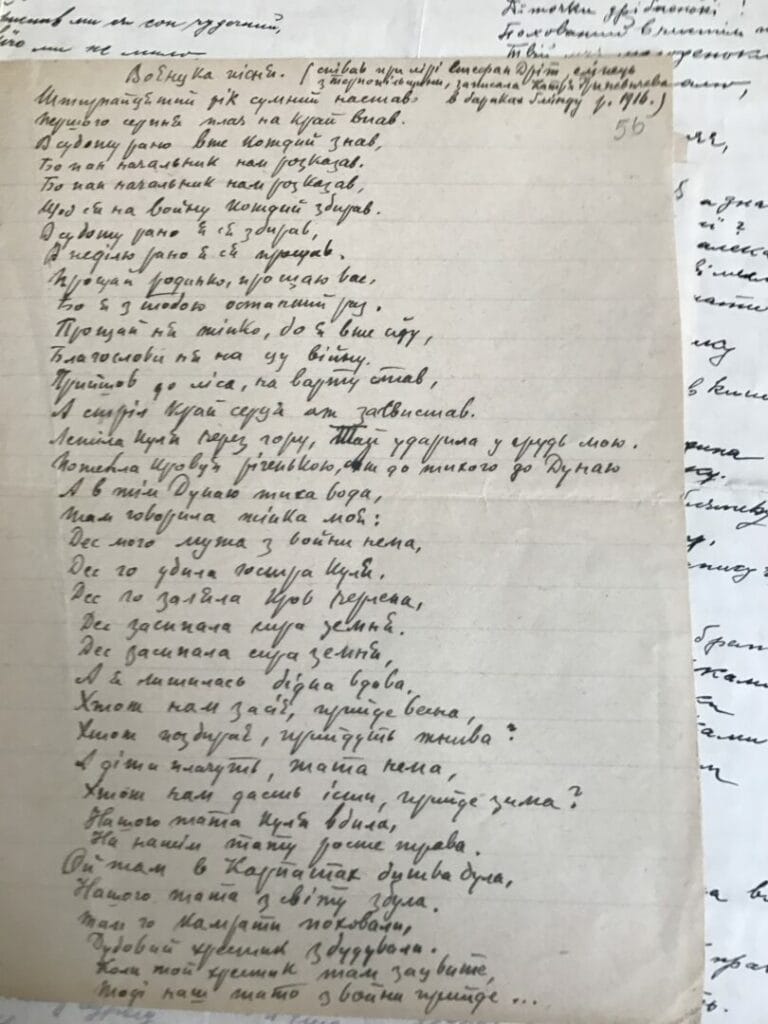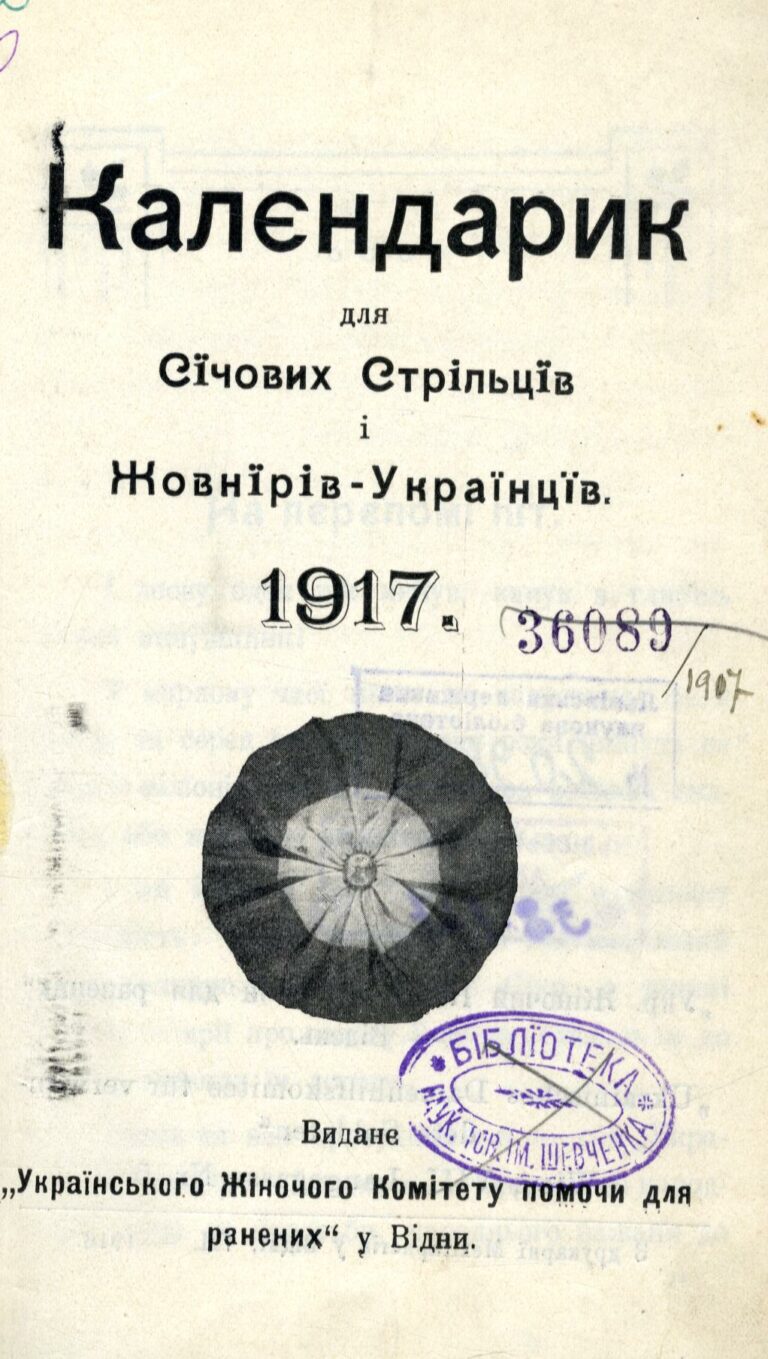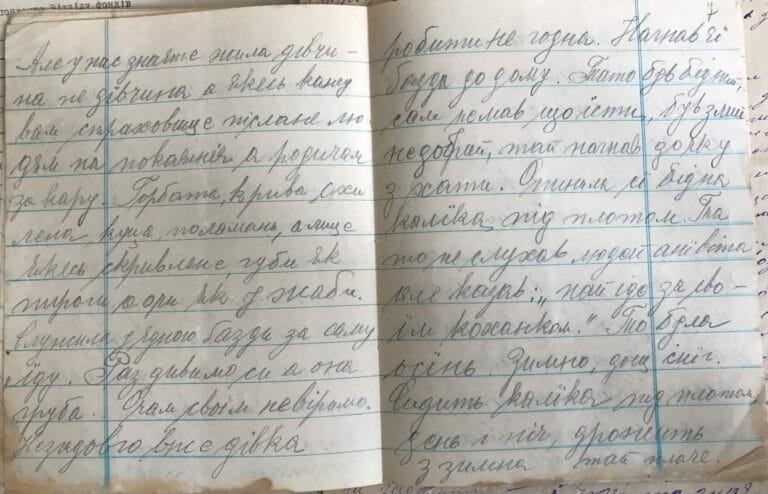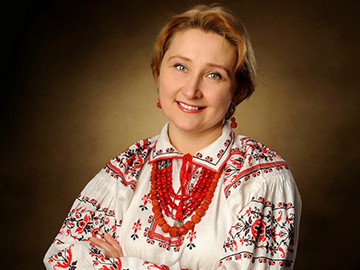Related sources:

“The sorrowful 14th year has come”, Ukrainian song about the First World War
This source is a folklore text representing the developments of the First World War. Katria Hrynevycheva (1875-1947), a writer, public activist, head of the Ukrainian Women's Union (Soiuz Ukrainok), recorded a variation of the song in the city of Gmünd (Lower Austria), during her stay in the war refugees displacement camp. The recording was found in the archives of Volodymyr Hnatiuk. It is probably that Hrynevycheva was motivated by Hnatiuk’s call to document war-inspired pieces (see below the entry on “War and Folk Poetry”) and her personal story as a mother of two volunteer combatants from the Legion of Ukrainian Sich Riflemen (USR, Ukrainian National Military Formation within the Austro-Hungarian Army). The camp...

“War and Folk Poetry” by Volodymyr Hnatiuk, 1916, еxcerpt from the article
Volodymyr Hnatiuk is a public and cultural activist, the first professional Ukrainian studies scholar in Halychyna during the First World War. He published a seminal article that included three parts: and then analytical introduction, an appendix with the text of different genres, and a questionnaire illustrated below. The experienced ethnographer and the folklore researcher raised an issue about the pertinent need to record war related folklore. He believed that oral speech actively responds to every critical historic social phenomenon, and the new creativity from the war is also a crucial information and propaganda source. Hnatiuk emphasized that the key task is to identify the popular view on the war, the attitudes to the...

Oral narratives recorded by Oles Babij during World War I, 1917
This source presents two narratives and perspectives on the “female” and “male” views of the dramas of the First World War. The oral narratives were recorded by Oles Babij (1897-1975), a soldier in the Austro-Hungarian army who later served as a rifleman in the Ukrainian Army (UGA). Additionally, he was a symbolist writer and the author of the lyrics to the Organisation of Ukrainian Nationalists (OUN) anthem “Зродились ми великої глодини” [We Are Born of a Great Hawthorn Tree]. Both texts were recorded on November 12, 1917, in his native village of Serednie near the city of Kalush (now Ivano-Frankivsk oblast, Ukraine). These stories reflect the folk-religious experience and Christian imperatives of the...

“Oh, in the meadow blooms the red viburnum,” a Ukrainian resistance song
This source is an audio recording of the folk version of the one of the most popular Ukrainian resistance songs. It is known by various titles: “The rifleman’s Anthem,” [Cтрілецький гімн] “The song of the viburnum,” [Пісня про калину] or “Oh, in the meadow blooms the red viburnum” [Ой у лузі червона калина]. The song’s worldwide spread was facilitated by the performance of Andriy Khlyvnyuk, the lead singer of the Boombox band, who on February 28, 2022, the fourth day of Russia’s full-scale attack on Ukraine, sang only the first stanza of the song. His performance on St. Sophia Square in Kyiv led to the emergence of remixes. Among the many performers are...

Legend about the “disguised emperor” during the First World War
This source is the audio recording of the legend about the events of the First World War. The storyline describes an “emperor” who was incognito inspecting his army and its provisions. The prototype for the protagonist is Franz Josef I (1830–1916), the emperor of the Austrian Hungarian Empire. This artistic image shows the elements of naive monarchism. The type of “just and kind” ruler is based on his favorable attitude to Galician Ukrainians, who he took as loyal to the Habsburgs. This social myth about the “loyal troops” consisting of Ukrainians was reflected in the prose but also in songs from the late 19th and early 20th centuries. Our emperor is getting old...

